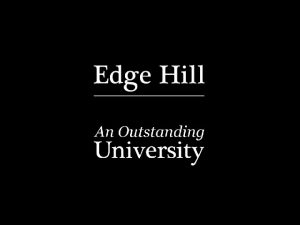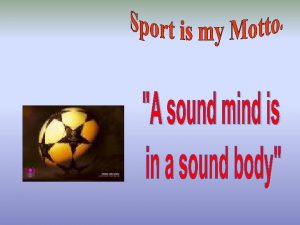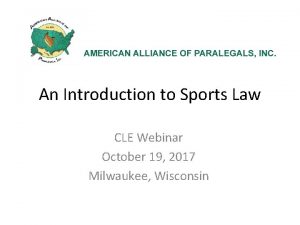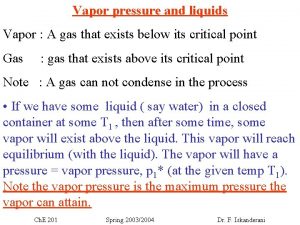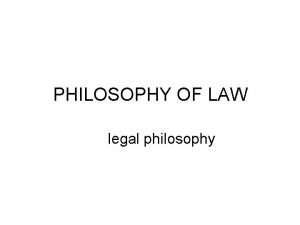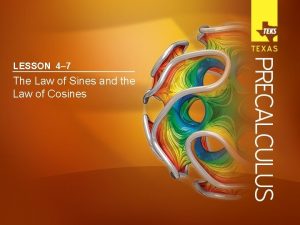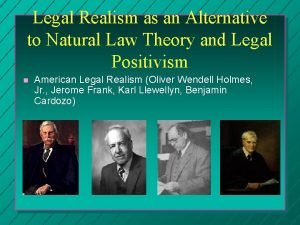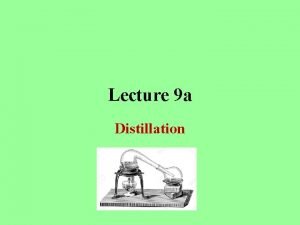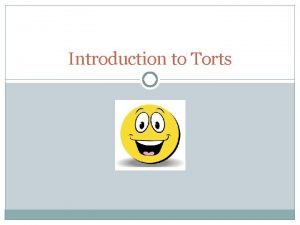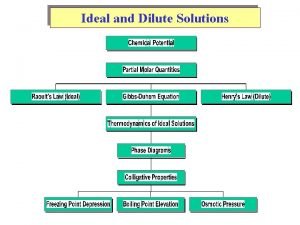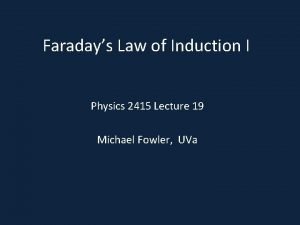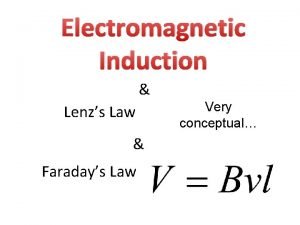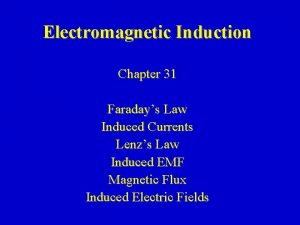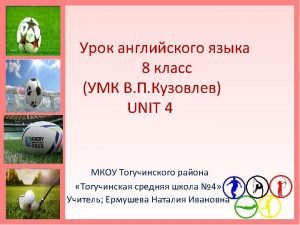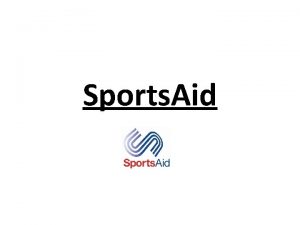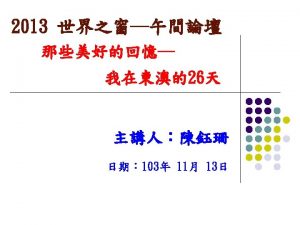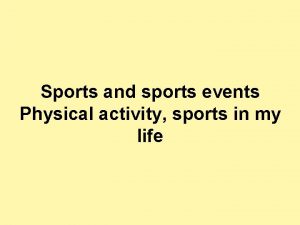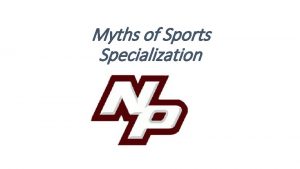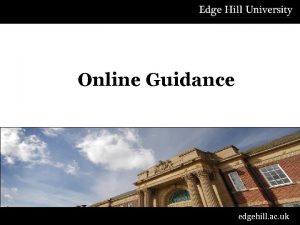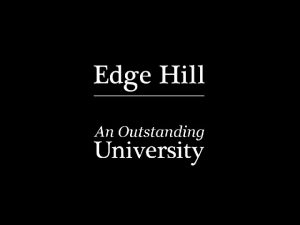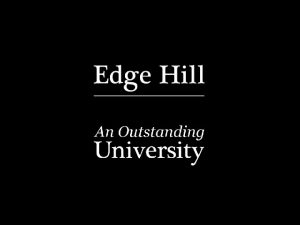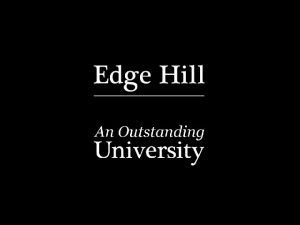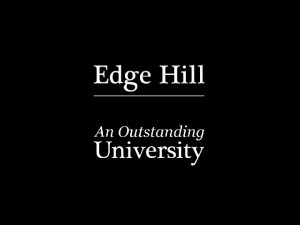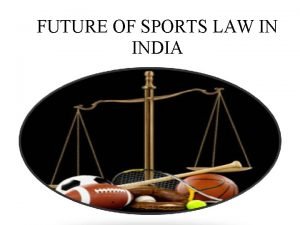EU Sports Law Policy Professor Richard Parrish edgehill


























- Slides: 26

EU Sports Law & Policy Professor Richard Parrish edgehill. ac. uk

1957 Treaty of Rome • No mention of sport (not until 2009 - Art. 165 TFEU). • Articles establishing free movement of workers and services. • Articles governing competition policy. • Do these Treaty Articles apply to sport? • In exercising its Treaty powers, have the EU institutions respected the autonomy and specificity of sport? 2 edgehill. ac. uk

Key Cases • Case 36/74 Walrave and Koch v Association Union Cycliste Internationale ECR [1974] 1405 • Case C-415/93 Union Royale Belge Sociétés de Football Association and others v Bosman and others [1995] ECR I-4921. • Joined Cases C-51/96 and C-191/97 Deliège v. Ligue francophone de Judo et disciplines Associeés Asb [2000] ECR I-2549. • Case C-519/04 P David Meca-Medina and Igor Macjen v Commission [2006] ECR I-6991. • Other important cases will be discussed later in the Summer School programme. 3 edgehill. ac. uk

Walrave • ‘Having regard to the objectives of the Community, the practice of sport is subject to Community law only in so far as it constitutes an economic activity within the meaning of Article 2 of the Treaty’ (para. 4). • The prohibition of discrimination based on nationality ‘does not affect the composition of sport teams, in particular national teams, the formation of which is a question of purely sporting interest and as such has nothing to do with economic activity’ (para. 8). Paragraphs 4 & 8 combined form the so called ‘sporting exception’. 4 edgehill. ac. uk

• The prohibition on discrimination contained in the free movement passages of the Treaty ‘…does not only apply to the action of public authorities but extends likewise to rules of any other nature aimed at regulating in a collective manner gainful employment and the provision of services’ (para. 17). • ‘The rule on non-discrimination applies in judging all legal relationships in so far as these relationships, by reason either of the place where they are entered into or the place where they take effect, can be located within the territory of the Community (now EU)’ (para. 28). 5 edgehill. ac. uk

Bosman ‘Article 48 (now 45 TFEU) of the Treaty precludes the application of rules laid down by sporting associations, under which a professional footballer who is a national of one Member State may not, on the expiry of his contract with a club, be employed by a club of another Member State unless the latter club has paid to the former club a transfer, training or development fee’ (para. 114). ‘Article 48 (now 45) of the Treaty precludes the application of rules laid down by sporting associations under which, in matches in competitions which they organize, football clubs may field only a limited number of professional players who are nationals of other Member States’ (para. 137). 6 edgehill. ac. uk

‘…in view of the considerable social importance of sporting activities and in particular football in the Community, the aims of maintaining a balance between clubs by preserving a certain degree of equality and uncertainty as to results and of encouraging the recruitment and training of young players must be accepted as legitimate’ (para. 106). edgehill. ac. uk

Deliège Selection rules are… ‘…inherent in the conduct of an international high-level sports event, which necessarily involves certain selection rules or criteria being adopted. Such rules may not therefore in themselves be regarded as constituting a restriction on the freedom to provide services prohibited by Article 49 (now 56) of the Treaty’ (para. 64). 8 edgehill. ac. uk

Meca-Medina • ‘The mere fact that a rule is purely sporting in nature does not have the effect of removing from the scope of the Treaty the person engaging in the activity governed by that rule or the body which has laid it down’ (para. 27). • ‘If the sporting activity in question falls within the scope of the Treaty, the conditions for engaging in it are then subject to all the obligations which result from the various provisions of the Treaty’ (para. 28). • Anti-doping rules do not ‘necessarily constitute a restriction of competition … since they are justified by a legitimate objective. Such a limitation is inherent in the organisation and proper conduct of competitive sport and its very purpose is to ensure healthy rivalry between athletes’ (para. 45). 9 edgehill. ac. uk

Applying Competition Law to Sport • Is the sports association carrying out economic activity? • Does the disputed rule restrict competition (Art. 101) or amount to an abuse of a dominant position (Art. 102)? – Account must be taken of the overall context in which the disputed rule was taken or produces its effects. – Need to assess the objectives of the rule. – Are the restrictive effects inherent in the pursuit of those objectives? – Is the rule proportionate? • Does the Art. 101(3) exemption criteria apply? 10 edgehill. ac. uk

Applying Free Movement Law to Sport • Is there a restriction on free movement? • Rules of purely sporting interest (national eligibility criteria) and rules inherent in the operation and proper functioning of sport (selection criteria) are not restrictions. • Directly discriminatory restrictions: only justified on the grounds of public policy, public security and public health. • Indirectly discriminatory restrictions: open ended objective justification (competitive balance, training of young players, protection of national team…) • Non-discriminatory restrictions: may render less attractive the exercise of free movement rights but capable of open ended objective justification. • Is the restriction proportionate? 11 edgehill. ac. uk

Key Actors in EU Sports Policy European Commission: Ø Since Lisbon DG Education and Culture has the power to propose ‘recommendations’ and ‘incentive measures’ in the area of sport but not general sports legislation. Incentive measures include Erasmus+ funding for sport. Ø DG EAC promotes dialogue with the sports movement. Ø Other DGs can propose legislation that has an impact on sport (employment, competition, media etc). Ø DG Competition can investigate sports related complaints. Ø Other DG’s can initiate legal proceedings against a Member State for breaches of EU law. 12 edgehill. ac. uk

• European Parliament: Ø Limited legislative role in sport. Ø Adopt opinions, reports and resolutions on sport related matters. Ø Commission sport related studies. Ø Submit parliamentary questions to the Commission. Ø Organise hearings on sport related matters. 13 edgehill. ac. uk

• Council of Ministers: Ø Since Lisbon a formal Sports Ministers Council meets. Ø Can adopt recommendations and incentive measures. Ø Can adopt resolutions: e. g. Work Plan for Sport (e. g. 2017 -2020): http: //data. consilium. europa. eu/document/ST-9639 -2017 INIT/en/pdf Ø Can adopt conclusions: e. g. Major Sport Events and Sports Diplomacy. Ø Can delegate work to expert groups. 14 edgehill. ac. uk

• The European Council: Ø Heads of State and Government. Ø Sets the long term strategic direction of European integration. Ø Agreed to the inclusion of Art. 165 TFEU (2009). 15 edgehill. ac. uk

• Court of Justice of the EU: Ø CJEU jurisprudence shapes the content of EU sports policy. Ø CJEU can hear preliminary references from national courts on the interpretation or validity of EU law. Ø Infringement proceedings before the Court can be initiated by the Commission against Member States for alleged breaches of EU law. Ø The Court can hear actions for annulment arising in instances where EU institutions or private individuals seek to challenge an EU act, such as a Commission competition decision. 16 edgehill. ac. uk

Reconciling Sport and Law 1. The Amsterdam Declaration on Sport (1997) 2. Nice European Council Declaration on Sport (2000) 3. The Independent Sports Review (2006) 4. The White Paper on Sport (2007)* 5. The Communication on Sport (2011)* 6. Article 165 TFEU - The Lisbon Treaty (2009)* 7. Encouraging Dialogue in Sport: The Social Dialogue (2008 -)* 17 edgehill. ac. uk

The White Paper (2007) • Major policy statement on sport in anticipation of Sports Article in the Treaty. • Very limited legislative intervention: possibly public disorder and players’ agents. • Endorsement of the Meca-Medina ‘case by case’ method. Very unpopular with governing bodies. • Focus on stakeholder representation in sport is important: social dialogue a solution? 18 edgehill. ac. uk

The Communication on Sport (2011) • The Communication sets out the Commission’s plans for sport. • Based around three themes: (1) the societal role of sport, (2) the economic dimension of sport and (3) the organisation of sport. 19 edgehill. ac. uk

• “Good governance in sport is a condition for the autonomy and self-regulation of sport organisations” (p. 10). • “…the Commission considers that there are inter-linked principles that underpin sport governance at European level, such as autonomy within the limits of the law, democracy, transparency and accountability in decision-making, and inclusiveness in the representation of interested stakeholders. Good governance in sport is a condition for addressing challenges regarding sport and the EU legal framework” (p. 10). • ‘Social dialogue’ forms essential part of good governance. 20 edgehill. ac. uk

Sport & the Lisbon Treaty (1) Article 165 Lisbon Treaty: ‘Education, Vocational Training, Youth and Sport’. 1. ‘The Union shall contribute to the promotion of European sporting issues, while taking account of the specific nature of sport, its structures based on voluntary activity and its social and educational function’. 2. Union action is aimed at ‘developing the European dimension in sport, by promoting fairness and openness in sporting competitions and cooperation between bodies responsible for sports, and by protecting the physical and moral integrity of sportsmen and sportswomen, especially young sportsmen and sportswomen’. 3. The Union and the Member States shall foster cooperation with third countries and the competent international organisations in the field of education and sport, in particular the Council of Europe. 4. In order to contribute to the achievement of the objectives referred to in this Article: the European Parliament and the Council, acting in accordance with the ordinary legislative procedure, after consulting the Economic and Social Committee and the Committee of the Regions, shall adopt incentive measures, excluding any harmonisation of the laws and regulations of the Member States; the Council, on a proposal from the Commission, shall adopt recommendations. 21 edgehill. ac. uk

Article 165: Issues • Establishes a more formal rolling political agenda on the subject of sports law and policy. New Council of Sports Ministers meets. Work plans for sport agreed. • Promotes dialogue between the sports movement and the EU: structured dialogue and social dialogue. • Resolves the consequences of the UK v. Commission litigation on the legality of budgetary appropriations for measures with no legal base: Erasmus + Programme now includes sport. 22 edgehill. ac. uk

• Article 165 excludes any harmonisation of the laws and regulations of the member states thus safeguarding sporting autonomy. • Article 165 mentions the ‘specific nature of sport’: does this bind the Commission and the CJEU in the exercise of other Treaty powers such as free movement and competition law? Two views on this (the horizontal obligation question). • What is meant by “fairness” and “openness” in European competitions? Can be read two ways: (1) to protect traditional sporting rules and practices or (2) as a means of challenging them. 23 edgehill. ac. uk

Social Dialogue • EU sports policy encouarges dialogue within sport as a means of avoiding litigation (see White Paper & Communication & Art. 165). • 30 existing Sectoral Committees (agricultural, telecom, civil aviation, etc. ). • Content of social dialogue must relate to the employment relationship between employers and employees. • Social Dialogue Committee in football established in 2008. • Fifpro represents workers & EPFL (leagues) and ECA (clubs). • UEFA chairs the committee. edgehill. ac. uk

Social Dialogue Agreement 2012 • Minimum Requirements in Standard Player Contracts (2012). • Will the social partners go further and sign further agreements on more contentious issues: reform of FIFA transfer regulations, homegrown player rules, agent regulations…? • Will social dialogue transform labour relations in football and reshape the European model of sport? • Can social dialogue establish legal certainty in sport? 25 edgehill. ac. uk

2012 Social Dialogue Agreement 26 edgehill. ac. uk
 Blackboard edge hill
Blackboard edge hill Liz parrish
Liz parrish Promotion from associate professor to professor
Promotion from associate professor to professor Ucf richard quinn
Ucf richard quinn Professor richard schilling
Professor richard schilling Power in looking for richard
Power in looking for richard Indoor sports outdoor sports
Indoor sports outdoor sports Newton's first law and second law and third law
Newton's first law and second law and third law Newton's first law and second law and third law
Newton's first law and second law and third law Boyles law
Boyles law Constant in avogadro's law
Constant in avogadro's law Sports law cle
Sports law cle Raoult's law and dalton's law
Raoult's law and dalton's law What is a civil law
What is a civil law Positive law vs natural law
Positive law vs natural law Principles of natural law
Principles of natural law Natural law vs positive law
Natural law vs positive law Law of dominance
Law of dominance 4-7 law of sines and cosines
4-7 law of sines and cosines Legal realism vs natural law
Legal realism vs natural law Simple distillation vs fractional distillation
Simple distillation vs fractional distillation Criminal law plaintiff
Criminal law plaintiff Thermodynamics equations
Thermodynamics equations Law of segregation and independent assortment
Law of segregation and independent assortment Faraday's law
Faraday's law Faraday's law vs lenz's law
Faraday's law vs lenz's law Faradays alw
Faradays alw
